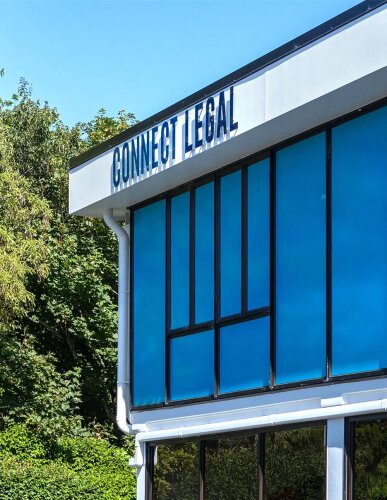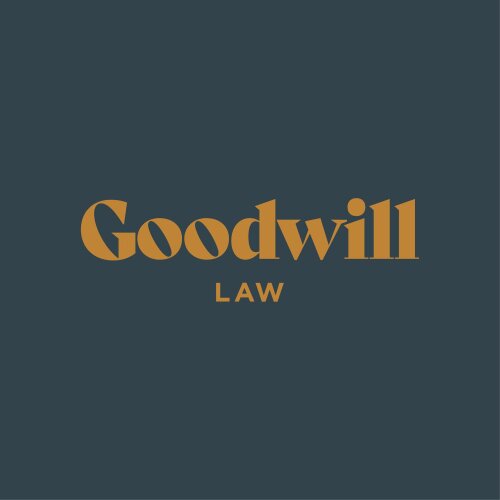Best Admiralty & Maritime Lawyers in New Plymouth
Share your needs with us, get contacted by law firms.
Free. Takes 2 min.
List of the best lawyers in New Plymouth, New Zealand
About Admiralty & Maritime Law in New Plymouth, New Zealand
Admiralty and maritime law in New Plymouth, New Zealand deals with legal matters arising on navigable waters, both coastal and at sea. Given New Plymouth’s significant location on the west coast of the North Island and its active port, Port Taranaki, maritime law plays a crucial role in the local economy. This field covers shipping, navigation, waterside operations, marine pollution, fishing regulations, accidents at sea, and related commercial contracts. New Plymouth is subject to New Zealand’s national maritime legislation, as well as international conventions to which New Zealand is a party.
Why You May Need a Lawyer
There are many scenarios where individuals and businesses in New Plymouth might require legal assistance in Admiralty and Maritime matters:
- Handling personal injuries or property damage at sea
- Resolving shipping and cargo disputes
- Dealing with vessel arrests or detentions
- Navigating marine pollution or environmental breaches
- Assisting with fishing rights and compliance
- Advice regarding marine insurance and claims
- Drafting or reviewing maritime commercial contracts
- Managing salvage operations or towage agreements
- Assisting with customs or immigration issues at port
- Representing parties in maritime investigations or prosecutions
A lawyer experienced in this field ensures your rights are protected and helps you understand your obligations under the law.
Local Laws Overview
Key local legal frameworks in New Plymouth affecting Admiralty and Maritime matters include the Maritime Transport Act 1994, which governs vessel safety, accident reporting, maritime security, pollution, and the administration of maritime licenses. Port and harbour operations are also regulated under the Local Government Act and Port Companies Act. New Plymouth’s port facilities must comply with the requirements of Maritime New Zealand, the national regulatory authority, along with regional rules made by the Taranaki Regional Council. Additional international conventions, such as SOLAS and MARPOL, apply to shipping and marine pollution. Owners, operators, and workers should be aware that strict compliance is required, and breaches can include severe penalties.
Frequently Asked Questions
What types of cases fall under Admiralty and Maritime Law in New Plymouth?
Typical cases include vessel collisions, salvage claims, marine pollution incidents, shipping contract disputes, crew injuries, and fisheries matters in New Plymouth waters.
Who regulates maritime safety and environmental standards locally?
Maritime New Zealand is the primary authority for maritime safety and environmental protection, supported by local regulations from the Taranaki Regional Council for harbour and coastal matters.
Can a ship or vessel be arrested in New Plymouth?
Yes, under New Zealand law, ships can be arrested in New Plymouth for outstanding debts, crew wages, or damages, but only after following proper legal procedures through the High Court.
What should I do if I am injured while working on a vessel at Port Taranaki?
Seek medical assistance immediately, notify your employer, and consider consulting a maritime lawyer to understand your rights under the Maritime Transport Act 1994 and relevant compensation laws.
How are marine pollution breaches investigated?
Maritime New Zealand handles investigations, often in cooperation with regional authorities. Incidents must be recorded, and those responsible could face fines or criminal prosecution.
What is the role of Port Taranaki Limited in maritime matters?
Port Taranaki Limited operates the port and is responsible for harbour safety, pilotage, navigation, and enforcing port rules alongside national and regional authorities.
Do fishing vessels face special regulations?
Yes, fishing operations must comply with quota management systems, safety regulations, crew certification and specific local Taranaki rules related to environmental sustainability.
How can I resolve a cargo damage dispute?
Cargo disputes are typically handled under contractual terms, insurance policies, and relevant maritime conventions. You may need legal advice or mediation to resolve disagreements.
Are marine insurance claims different from regular insurance?
Marine insurance claims often involve unique principles, such as general average and salvage, and may require a specialist maritime lawyer for effective resolution.
Is it necessary to report all maritime accidents in New Plymouth?
Yes, all accidents, injuries, or hazardous incidents on the water or at the port must be promptly reported to Maritime New Zealand and, if applicable, to the port authority.
Additional Resources
There are several key resources for those seeking guidance about Admiralty and Maritime issues in New Plymouth:
- Maritime New Zealand - National regulator for marine safety and laws
- Port Taranaki Limited - Information about local port operations and rules
- Taranaki Regional Council - Regional body for environmental and coastal management
- Ministry for Primary Industries - Regulation of fishing and aquaculture
- Citizens Advice Bureau - General legal referral and information
- New Zealand Law Society - For finding maritime law specialists
Next Steps
If you believe you need legal assistance with an Admiralty or Maritime issue in New Plymouth, start by documenting all relevant details, including dates, parties involved, and any communication or evidence. Reach out to a lawyer who specializes in maritime law. You can contact the New Zealand Law Society for a referral or consult local resources like Maritime New Zealand or the Citizens Advice Bureau for general guidance. Timely action is often crucial in maritime matters, so do not delay seeking professional advice tailored to your specific situation.
Lawzana helps you find the best lawyers and law firms in New Plymouth through a curated and pre-screened list of qualified legal professionals. Our platform offers rankings and detailed profiles of attorneys and law firms, allowing you to compare based on practice areas, including Admiralty & Maritime, experience, and client feedback.
Each profile includes a description of the firm's areas of practice, client reviews, team members and partners, year of establishment, spoken languages, office locations, contact information, social media presence, and any published articles or resources. Most firms on our platform speak English and are experienced in both local and international legal matters.
Get a quote from top-rated law firms in New Plymouth, New Zealand — quickly, securely, and without unnecessary hassle.
Disclaimer:
The information provided on this page is for general informational purposes only and does not constitute legal advice. While we strive to ensure the accuracy and relevance of the content, legal information may change over time, and interpretations of the law can vary. You should always consult with a qualified legal professional for advice specific to your situation.
We disclaim all liability for actions taken or not taken based on the content of this page. If you believe any information is incorrect or outdated, please contact us, and we will review and update it where appropriate.










